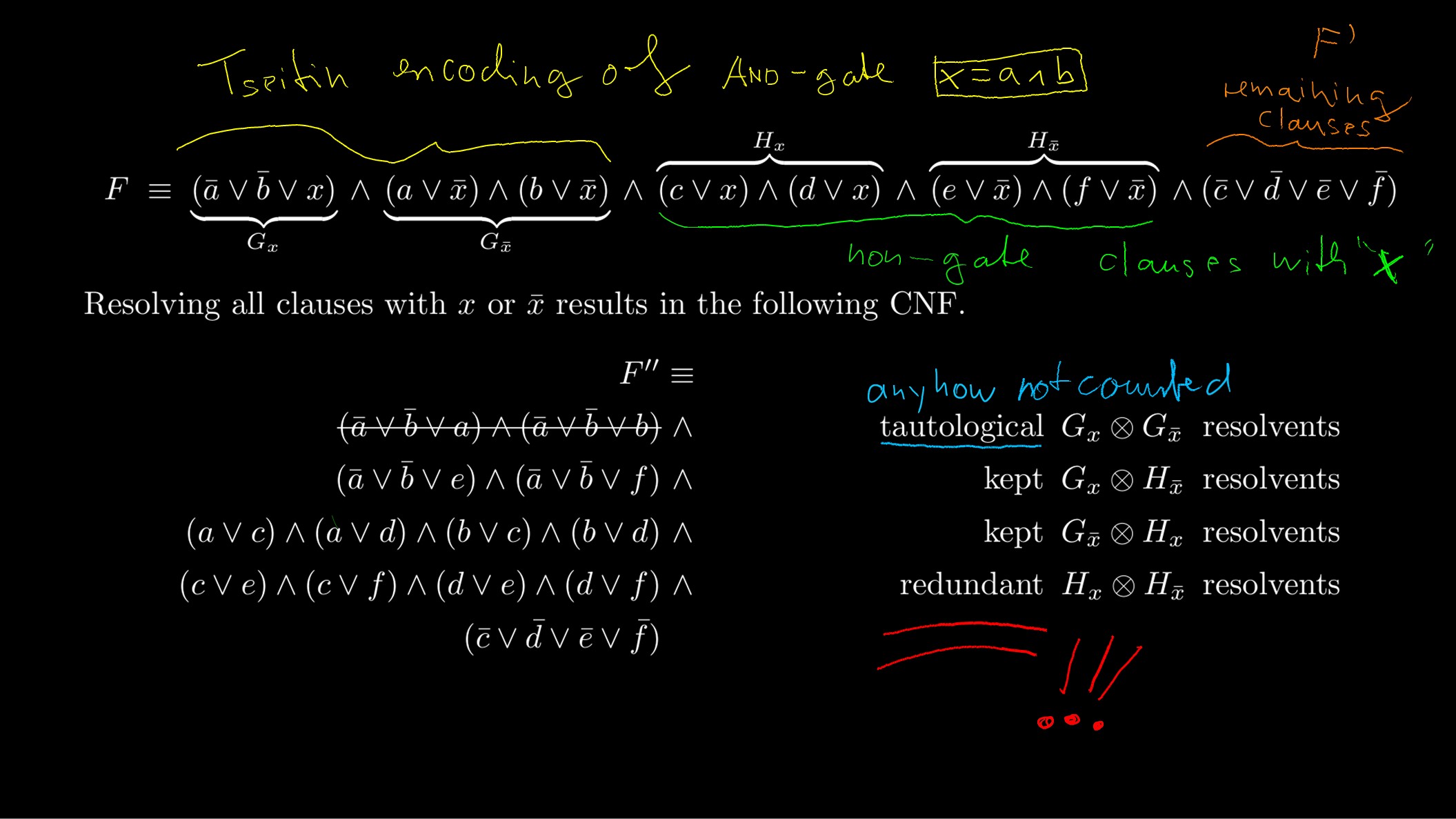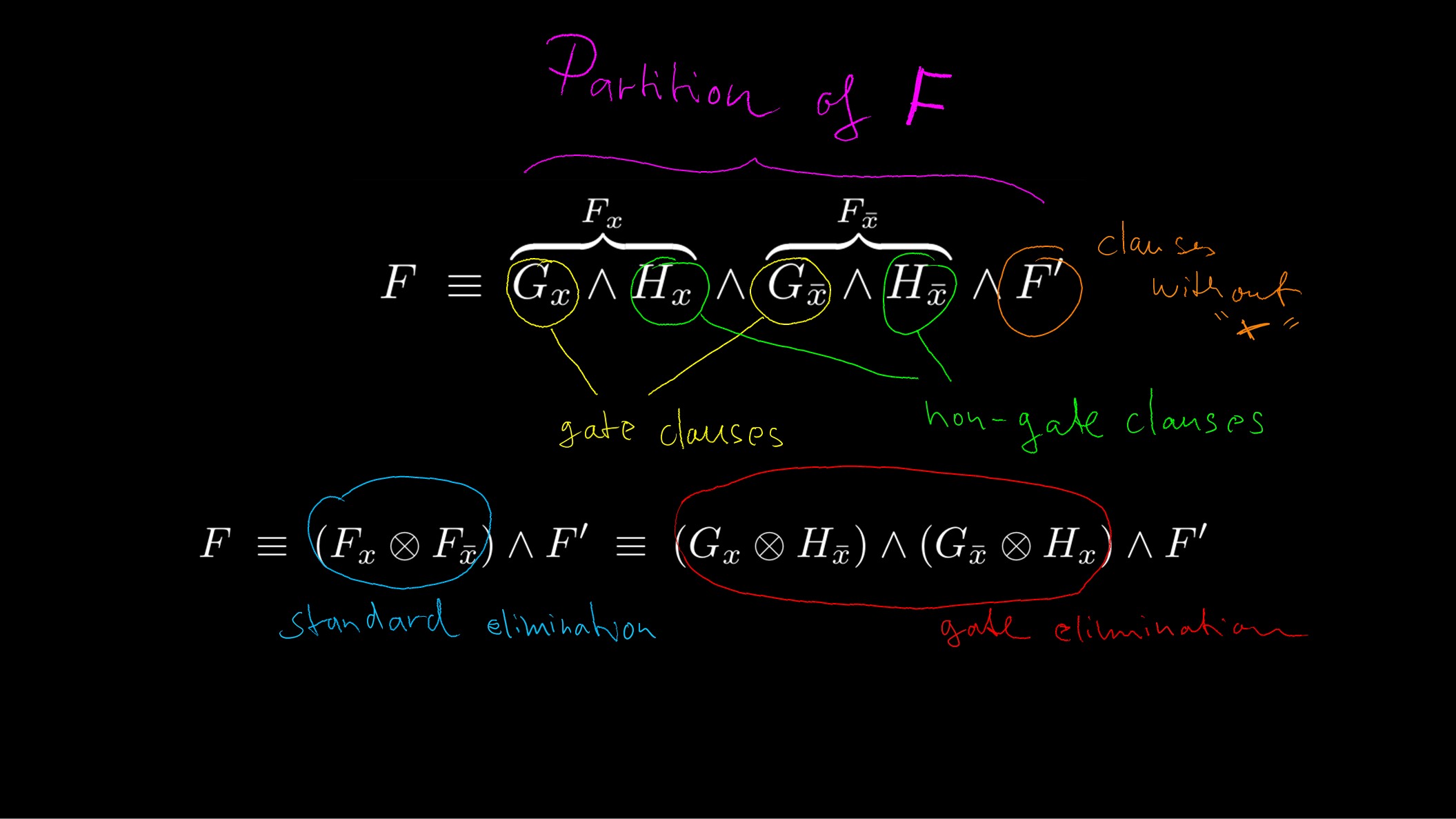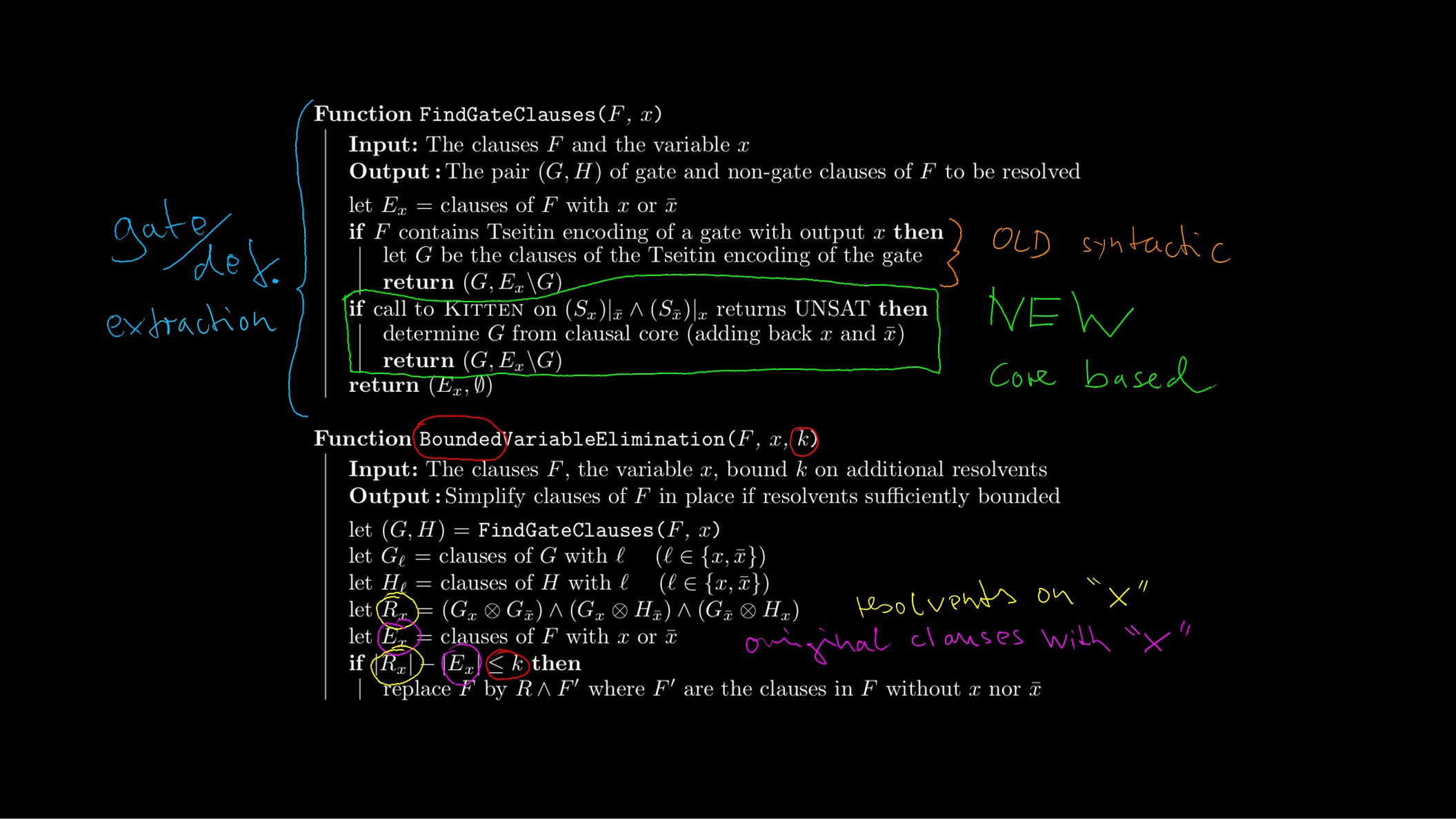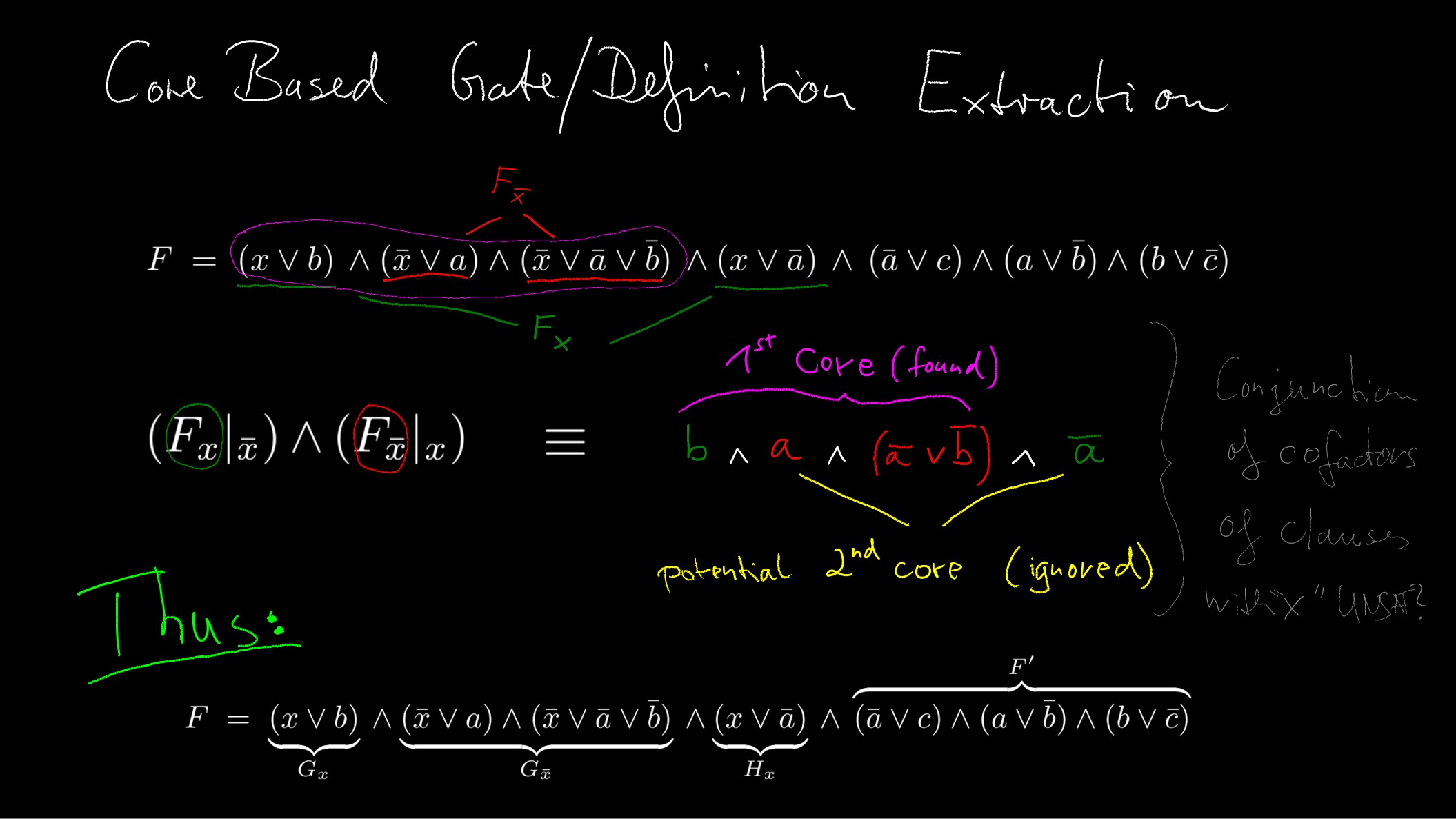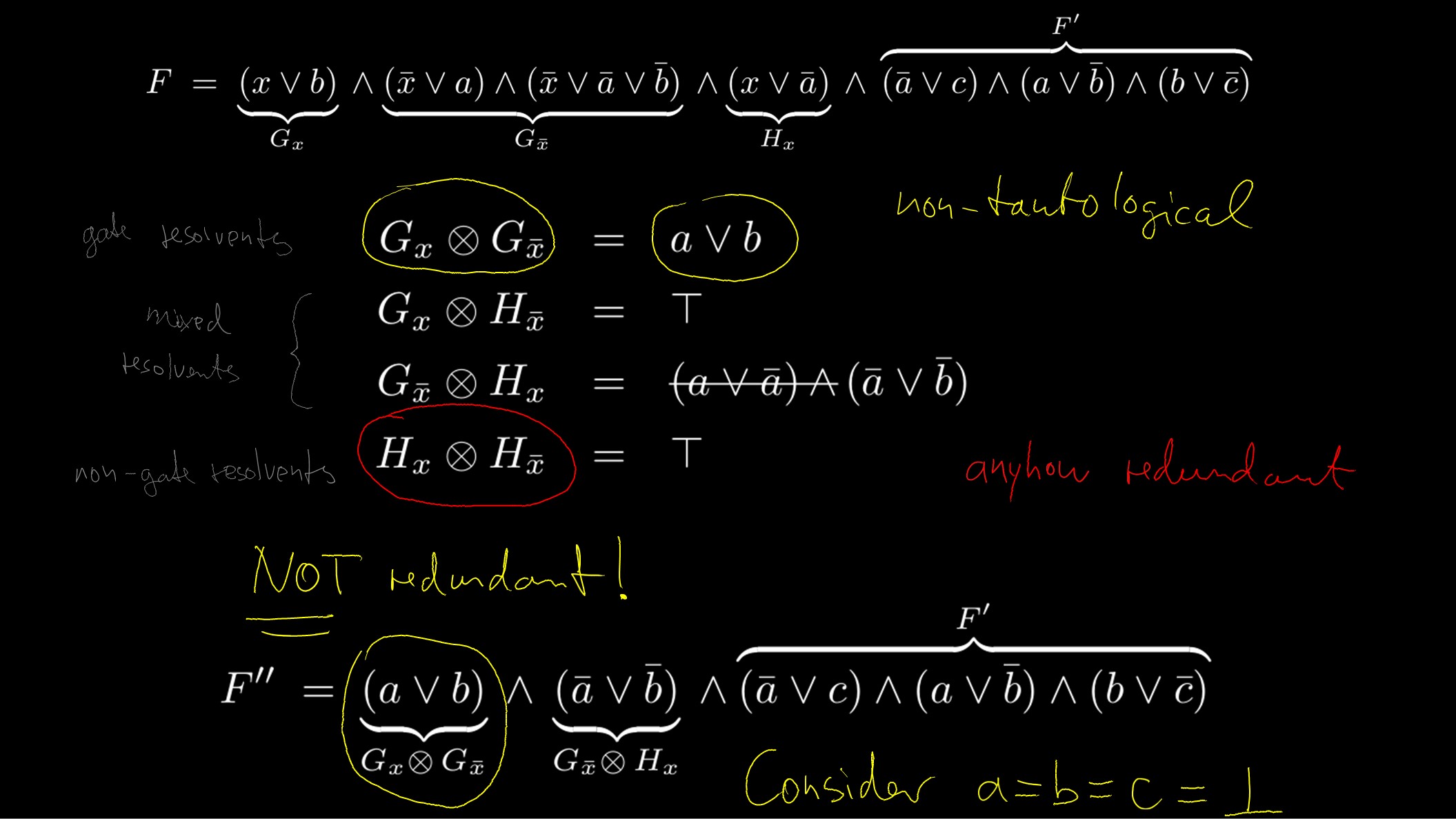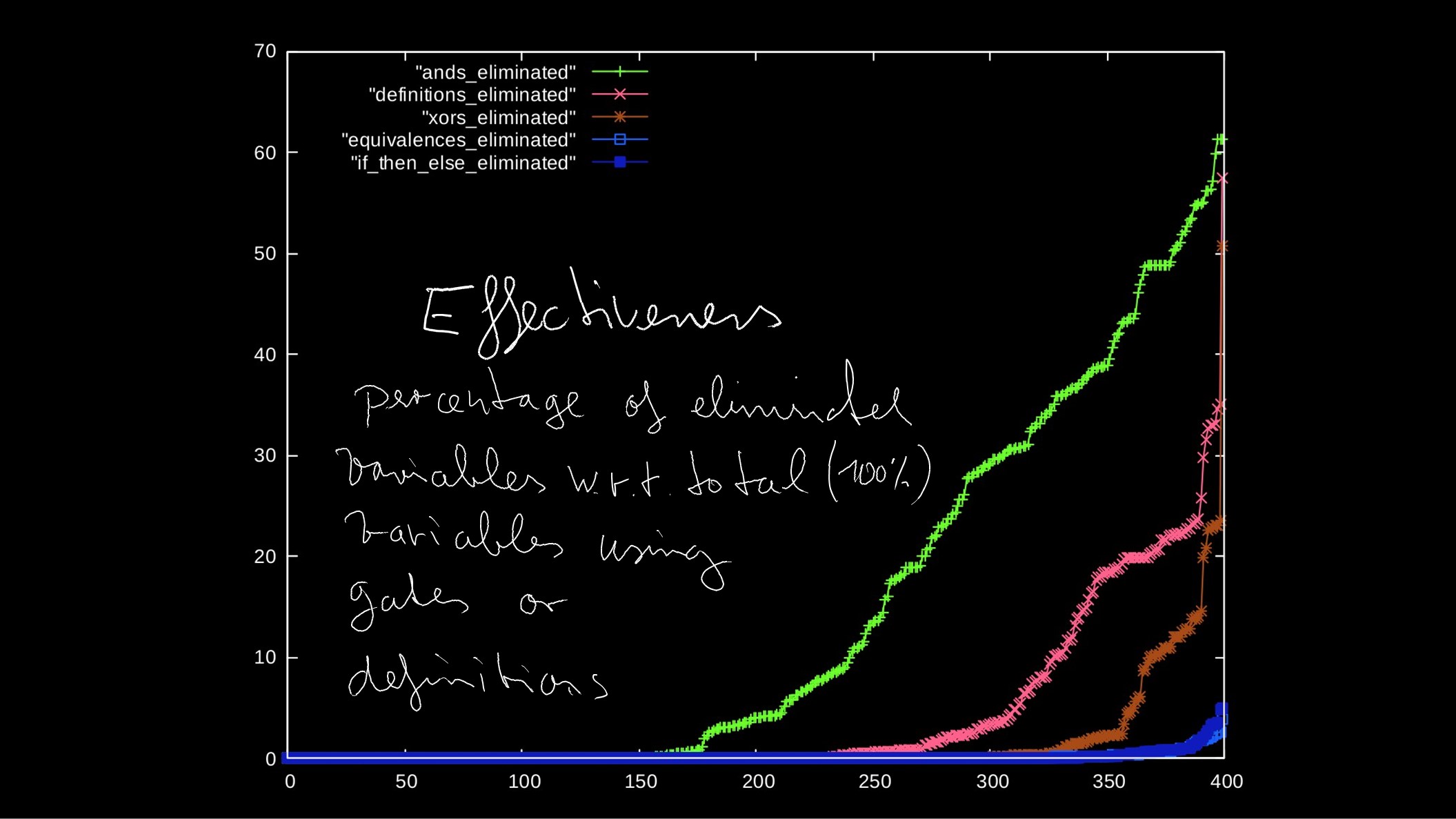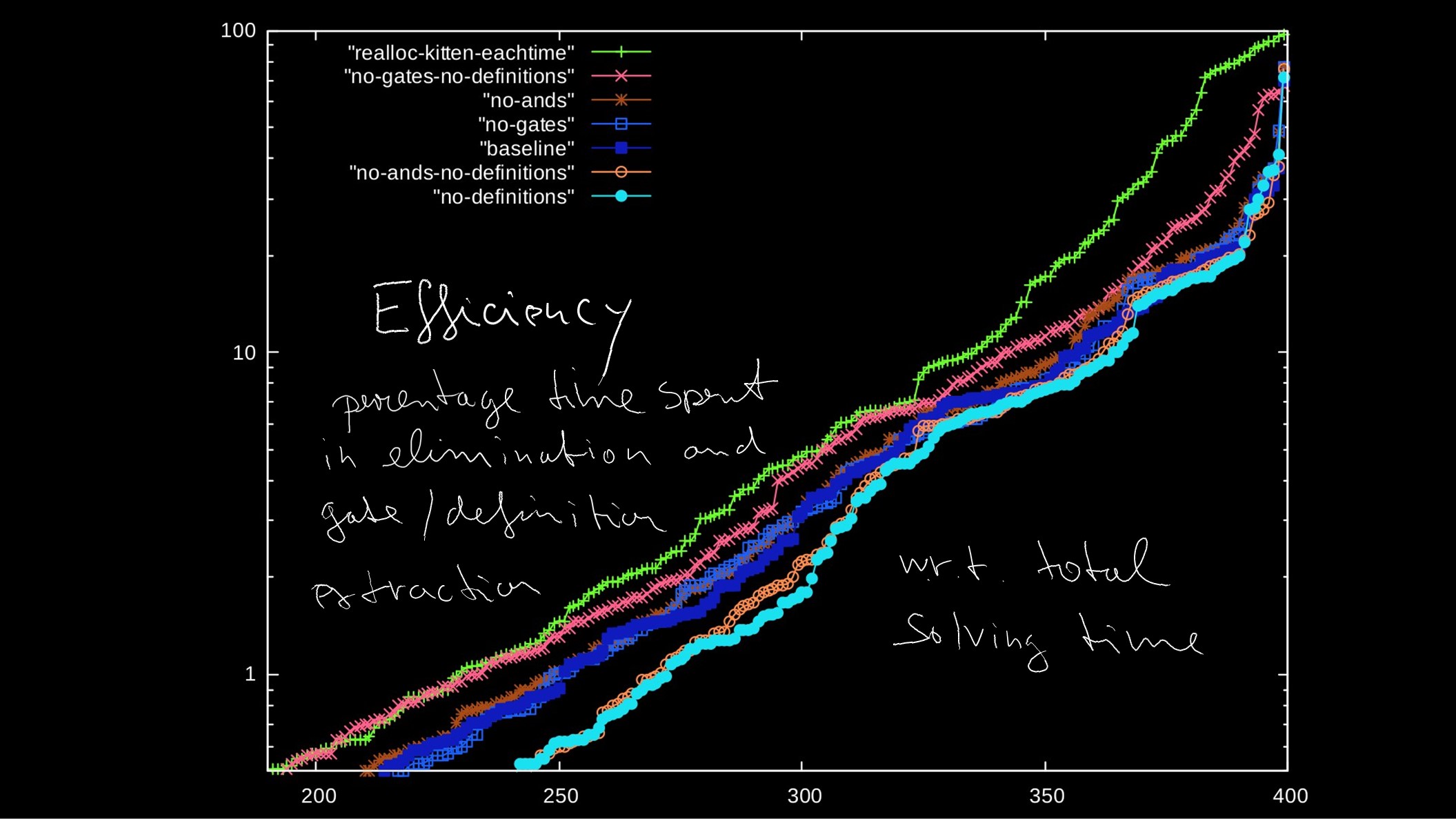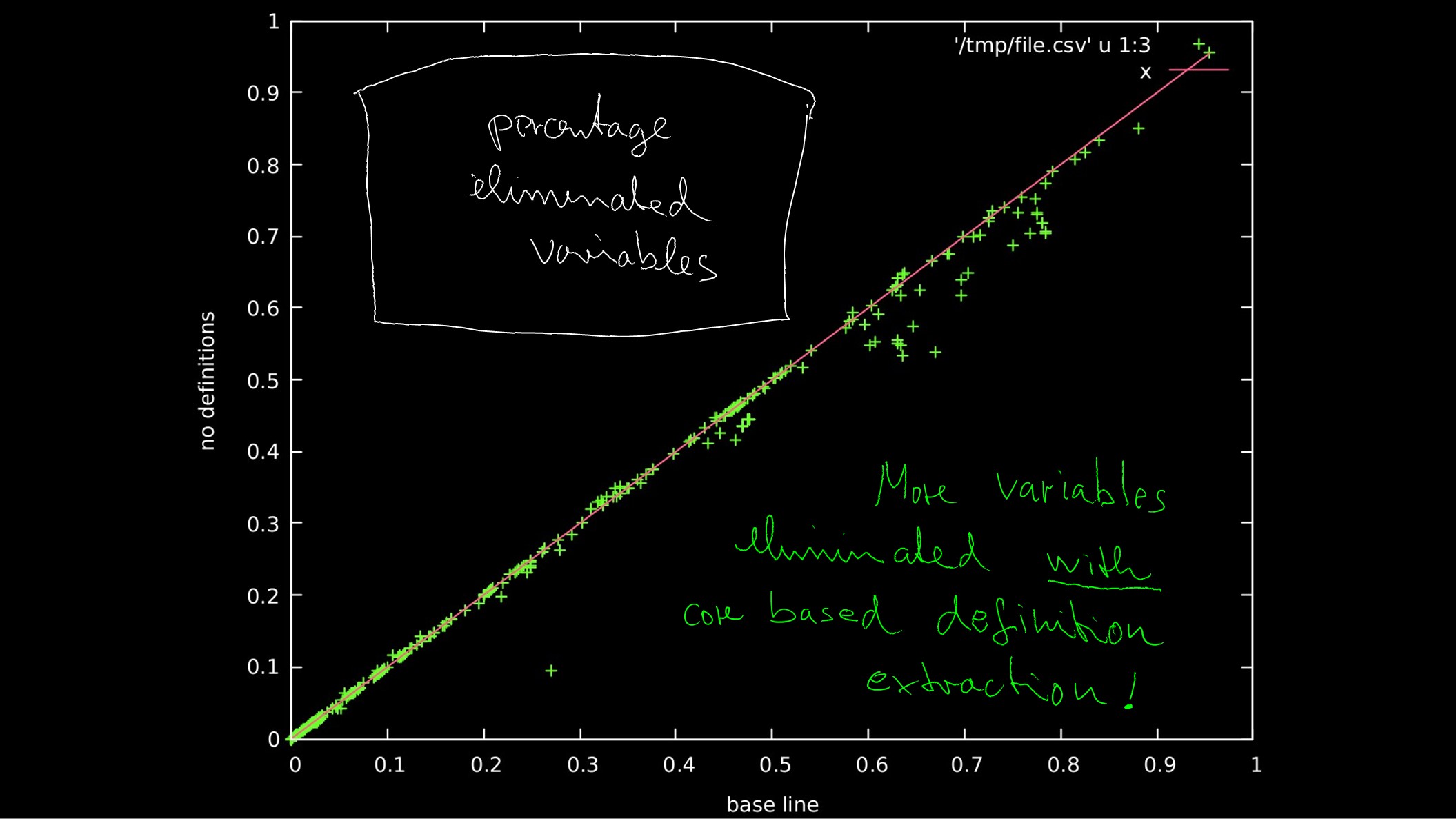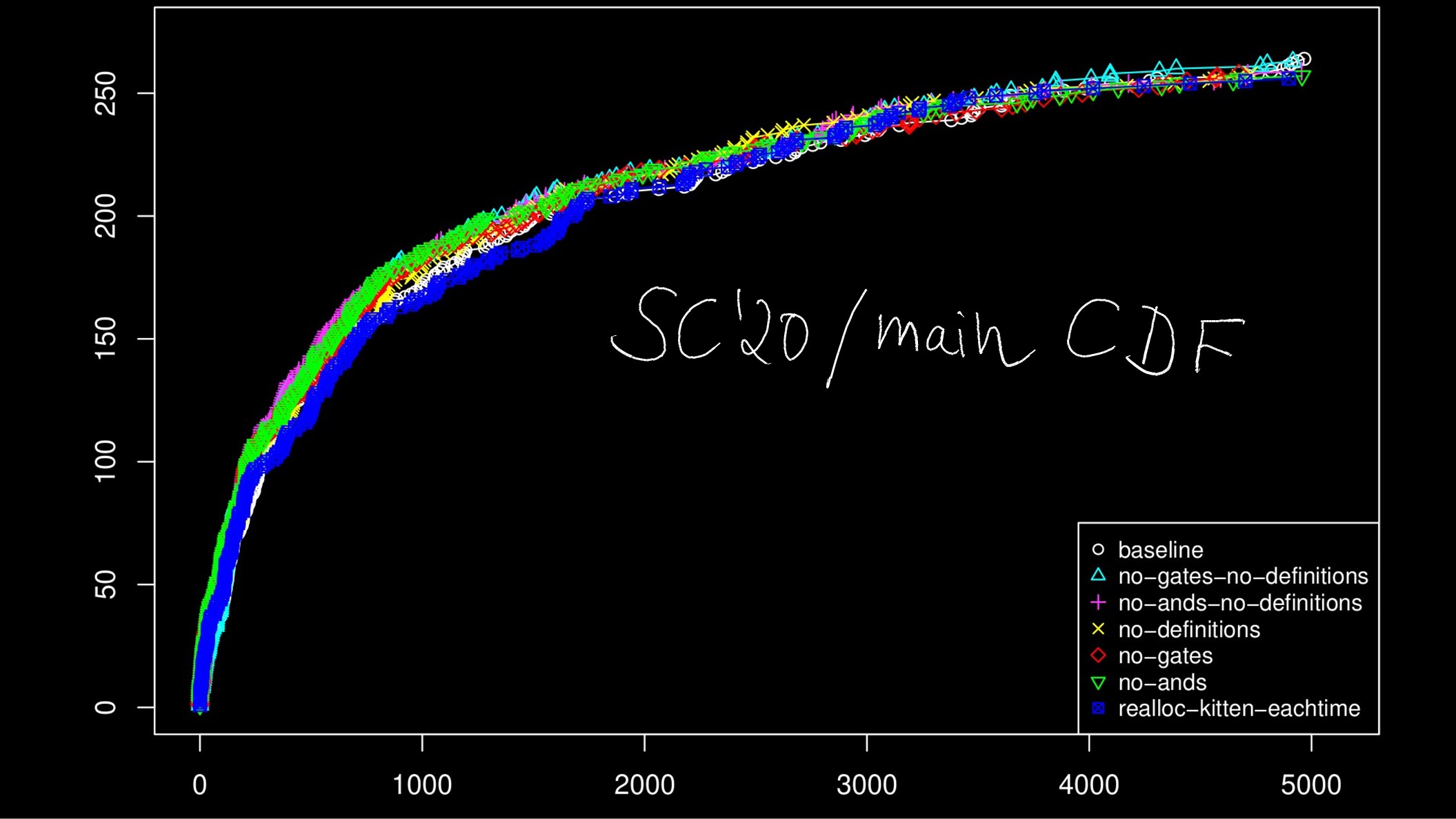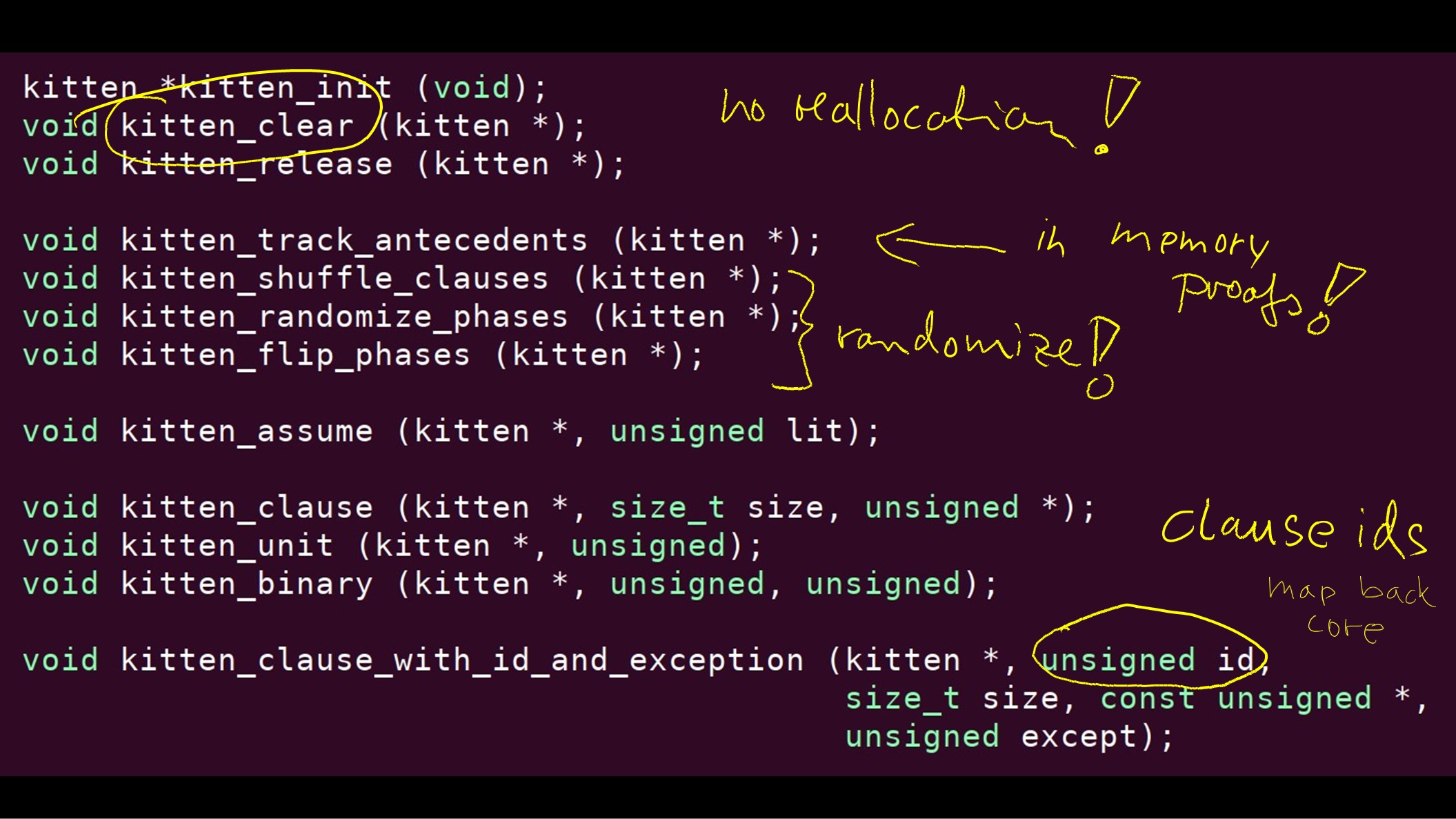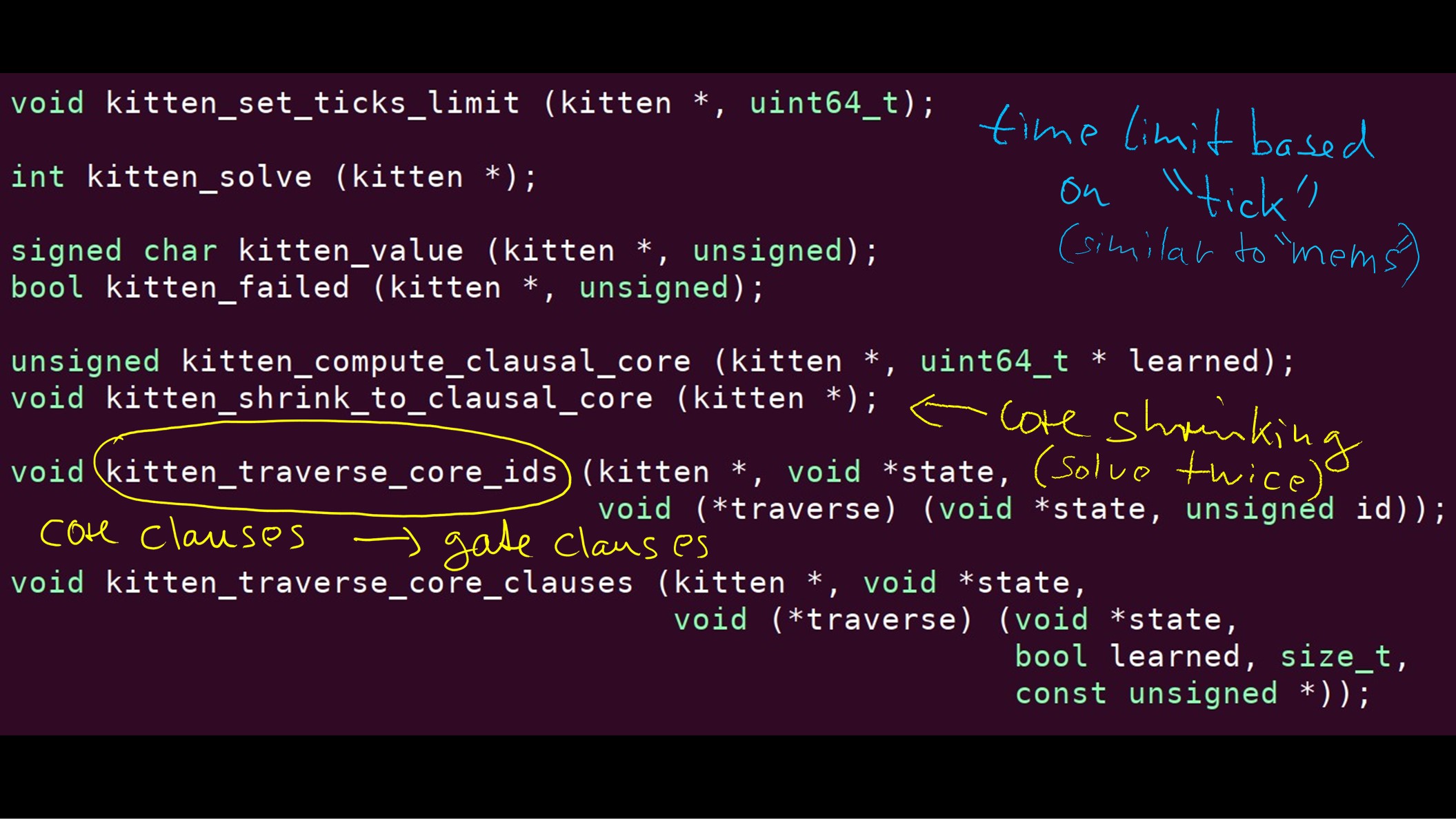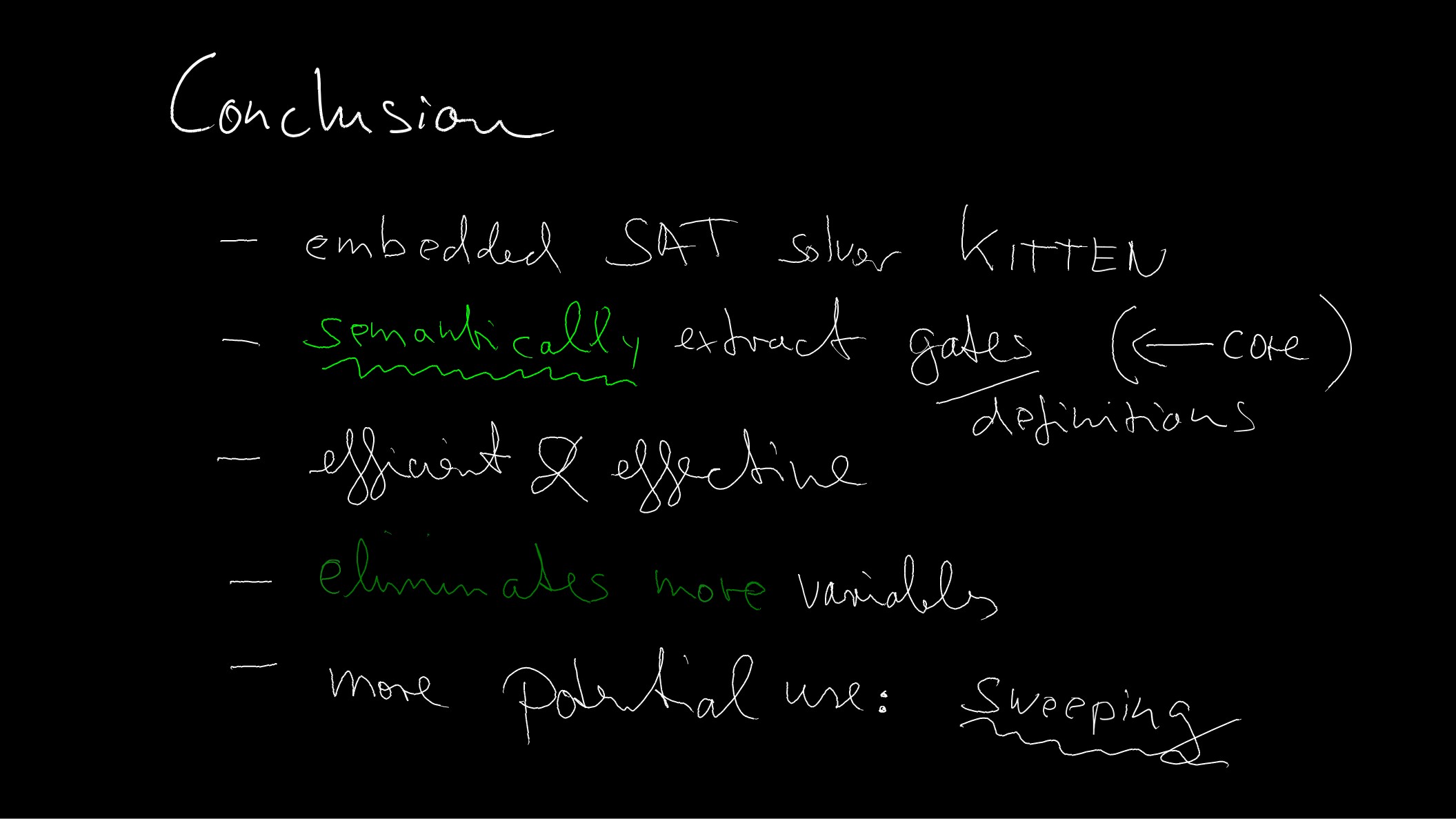1.
|
Cadical 求解器propagate.cpp传播函数代码注释: We are using the address of 'decision_reason' as pseudo reason for decisions to distinguish assignment decisions from other assignments. Before we added chronological backtracking all learned units were assigned at decision level zero ('Solver.level == 0') and we just used a zero pointer as reason. After allowing chronological backtracking units were also assigned at higher decision level (but with assignment level zero), and it was not possible anymore to just distinguish the case Both had a zero pointer as reason. Now only units have a zero reason and decisions need to use the pseudo reason 'decision_reason'.
——Cache Conscious Data Structures for Boolean Satisfiability Solvers
Finally, for long clauses we save the position of the last watch replacement in 'pos', which in turn reduces certain quadratic accumulated propagation costs (2013 JAIR article by Ian Gent) at the expense of four more bytes for each clause. |
|
|
Cadical中组合有kitten求解器——主要利用kitten求解器的gate-eliminate技术 kitten求解器中有二值观察及propagate函数 
1 static inline unsigned 2 propagate_literal (kitten * kitten, unsigned lit) 3 { 4 LOG ("propagating %u", lit); 5 value *values = kitten->values; 6 assert (values[lit] > 0); 7 const unsigned not_lit = lit ^ 1; 8 katches *watches = kitten->watches + not_lit; 9 unsigned conflict = INVALID; 10 unsigned *q = BEGIN_STACK (*watches); 11 const unsigned *const end_watches = END_STACK (*watches); 12 unsigned const *p = q; 13 while (conflict == INVALID && p != end_watches) 14 { 15 const unsigned ref = *q++ = *p++; 16 klause *c = dereference_klause (kitten, ref); 17 assert (c->size > 1); 18 unsigned *lits = c->lits; 19 const unsigned other = lits[0] ^ lits[1] ^ not_lit; 20 lits[0] = other, lits[1] = not_lit; 21 const value other_value = values[other]; 22 if (other_value > 0) 23 continue; 24 value replacement_value = -1; 25 unsigned replacement = INVALID; 26 const unsigned *const end_lits = lits + c->size; 27 unsigned *r; 28 for (r = lits + 2; r != end_lits; r++) 29 { 30 replacement = *r; 31 replacement_value = values[replacement]; 32 if (replacement_value >= 0) 33 break; 34 } 35 if (replacement_value >= 0) 36 { 37 assert (replacement != INVALID); 38 ROG (ref, "unwatching %u in", lit); 39 lits[1] = replacement; 40 *r = not_lit; 41 watch_klause (kitten, replacement, ref); 42 q--; 43 } 44 else if (other_value < 0) 45 { 46 ROG (ref, "conflict"); 47 INC (kitten_conflicts); 48 conflict = ref; 49 } 50 else 51 { 52 assert (!other_value); 53 assign (kitten, other, ref); 54 } 55 } 56 while (p != end_watches) 57 *q++ = *p++; 58 SET_END_OF_STACK (*watches, q); 59 return conflict; 60 } 
1 static inline unsigned 2 propagate (kitten * kitten) 3 { 4 assert (kitten->inconsistent == INVALID); 5 unsigned propagated = 0; 6 unsigned conflict = INVALID; 7 while (conflict == INVALID && 8 kitten->propagated < SIZE_STACK (kitten->trail)) 9 { 10 const unsigned lit = PEEK_STACK (kitten->trail, kitten->propagated); 11 conflict = propagate_literal (kitten, lit); 12 kitten->propagated++; 13 propagated++; 14 } 15 ADD (kitten_propagations, propagated); 16 return conflict; 17 }
kitten技术介绍——来自http://fmv.jku.at/biere/talks/Biere-POS21-talk.pdf ppt1
ppt2
ppt3
ppt4
ppt5
ppt6
ppt7
ppt8
ppt9
ppt10
ppt11
ppt12
ppt13
|
|
2.
Cache Conscious Data Structures for Boolean Satisfiability Solvers
Chu, Geoffrey, Harwood, Aaron, and Stuckey, Peter J. ‘Cache Conscious Data Structures for Boolean Satisfiability Solvers’. 1 Jan. 2010 : 99 – 120.
3.
Ian P. Gent:
Optimal Implementation of Watched Literals and More General Techniques. J. Artif. Intell. Res. 48: 231-251 (2013)
4.
Martin Bromberger, Tobias Gehl, Lorenz Leutgeb, Christoph Weidenbach:
A Two-Watched Literal Scheme for First-Order Logic. PAAR@IJCAR 2022
5. 最早期文献
[1] J. P. M. Silva, K. A. Sakallah, Grasp - a new search algorithm for satisfiability,
in: International Conference on Computer Aided Design, ICCAD, IEEE Computer
Society Press, 1996, pp. 220–227.
[2] M. W. Moskewicz, C. F. Madigan, Y. Zhao, L. Zhang, S. Malik, Chaff: Engineering
an efficient sat solver, in: Design Automation Conference, 2001. Proceedings, ACM,
2001, pp. 530–535.
6. 另一些文章title
A Two-Watched Literal Scheme for First-Order;
An efficient propositional prover;
Cache Conscious Data Structures for Boolean Satisfiability Solvers
Core First Unit Propagation
Improving Resource Unaware SAT Solvers
On the Glucose SAT Solver
Optimal Implementation of Watched Literals and More General Techniques
Optimal implementation of watched literals and more general
Watched Literals for Constraint Propagation in Minion





